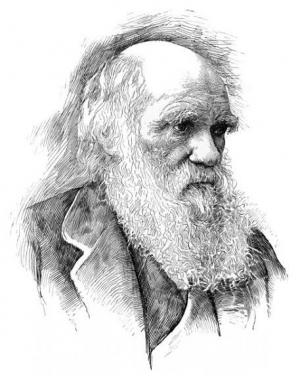 In my experience, people's understanding of Darwinism usually starts off in the organic realm, expands to cover culture, then expands further to cover brain processes - and eventually extends to cover many other fields. This is more-or-less the course of my own understanding of Darwinism - and others have reported going through a similar progression.
In my experience, people's understanding of Darwinism usually starts off in the organic realm, expands to cover culture, then expands further to cover brain processes - and eventually extends to cover many other fields. This is more-or-less the course of my own understanding of Darwinism - and others have reported going through a similar progression.Not everyone seems to penetrate through to the later stages. Many people seem to get stuck before the first stage - not even understanding organic evolution. The next-largest group understands organic evolution, but doesn't appreciate cultural evolution. Then there are those who understand cultural evolution - but don't grasp within-brain Darwinism.
Specialists in evolution generally need to understand the stage beyond their own. If you understand organic evolution without understanding cultural evolution, you won't have the concept of gene-meme coevolution, which is pretty fundamental to understanding how the gene pool of many species evolve. Similarly, those who understand cultural evolution without understanding within-brain evolution generally seem to have all kinds of misconceptions about how cultural evolution works. They often wax lyrical about how different cultural variation and transmission are from their organic counterparts, not realizing that the "intelligent design" processes they see in cultural evolution are themselves the product of Darwinian evolution - acting within brains.
Steven Pinker eloquently expresses the conceptual problem:
It's not that analogues of natural selection have nothing to add to our understanding of cultural change. But unlike the case of genetic evolution, where selection assumes the full burden of generating adaptation from the vast space of genetic possibilities, most of the work done in exploring the space of logically possible ideas must be attributed to the organization of the brain.
This is a fine start: acknowledging that selectionist frameworks are necessary to understanding cultural evolution is the first stage of developing a modern understanding the topic. However, one should not stop with the Darwinism when introducing the human brain! If you examine how the brain works, you will find copying with variation and selection plays a prominent role. The brain itself is a Darwin machine. Signals are copied whenever an axon splits. They are extinguished whenever a neuron fails to pass on their signal. When you invoke the brain, that isn't an alternative to natural selection and Darwinism. The brain includes copying and selective processes at many levels.
Rather curiously, the typical progression of understanding of Darwinism is different from the order in which the evolutionary processes developed historically. Understanding usually goes: Organic -> Culture -> Brains. History went: Organic -> Brains -> Culture. Humans seem to understand how culture works more easily than they understand how their own brains work.
References
- Tim Tyler (2011) Seven steps to understanding evolution










No comments:
Post a Comment